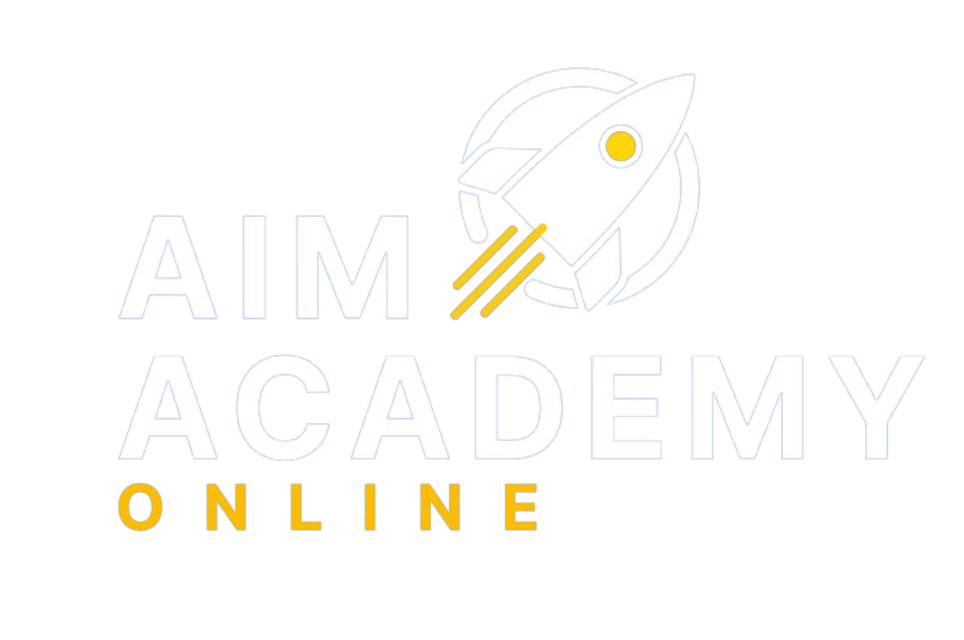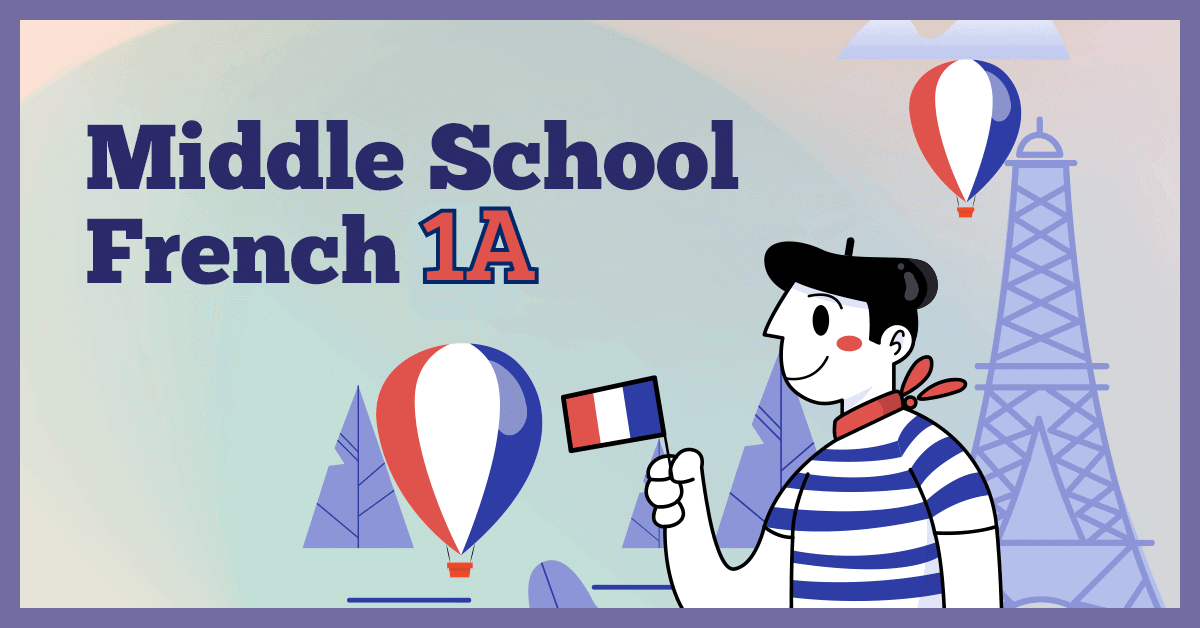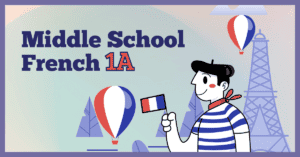Course Description
This live online introduction to French class for middle school is taught by Megan Newman and gives students 2 years to complete French 1. Students who complete two years of this course may be ready for French 2.
This full-year introduction to French allows students extended time and practice for level 1 structures and grammar. Knowing that students benefit from spending more time on each topic, a variety of strategies will be used to deepen their understanding of topics, such as:
- describing myself and others
- talking about my family
- talking about the weather and calendar
- communicating about my likes and asking others about their hobbies
- talking about where I live
- identifying places in the Francophone world
This course introduces students to 2nd language acquisition strategies, such as using cognates, decoding, and circumlocution for unknown words, which build confidence in young learners. In a small group setting with visual supports and tiered practice, middle school-age students develop skills to understand spoken and written language as well as begin to produce it themselves.
At this level, students learn to communicate in real-life contexts about everyday topics. The overarching communicative goal of this course is, “If I met a native French speaker, I would be able to talk about myself (my life, my hobbies, my friends, etc.)”. In order to meet this goal students are encouraged to use French as much as possible. Rather than isolating grammar, it is integrated into instruction according to the vocabulary and structures needed to perform a communicative function. Through the language learning process, students develop an understanding of how their own language is structured and the unique aspects of a different culture.
Students who complete two years of Middle School French may be ready for French 2 in high school. This course covers the same topics of a high school French I, but at half of the pace allowing for more time to practice. Middle school students tend to need different instructional strategies and activities to build a strong foundation in language.
Building a strong foundation early in language learning is advantageous for several reasons. It’s easier on the brain and helps in longer retention. The study of language is a tremendous exercise for the brain and learning. If students desire to pursue college, language placement tests may be necessary. The depth and length of exposure will be helpful.
Course Structure
The text will serve as the spine for the course and students will use the text as a guide for the structures and grammar. The weekly theme will be supplemented with authentic texts, videos and songs to provide students with comprehensible input alongside the text.
Each week there will be one live hour class (synchronous meeting) where students will learn and practice the target structures and vocabulary together. Throughout the week, students will be expected to complete approximately 1 hour of asynchronous practice on their own. This includes, but is not limited to, studying vocabulary with Quizlet, completing Quizizz assignments, short-answer writing practice and completing questions about listening comprehension from videos.
Who should enroll?
Students in grades 6-7 who have not previously studied French. Younger students may be admitted, upon request. If you are unsure if this is the correct French level for your student, please reach out to Mrs. Newman at mnewman@aimacademy.online.
The class sizes are limited to 12 in order to allow for Mrs. Newman to give individual feedback about pronunciation and proficiency levels.
- A quiet environment for live class
- High speed, broadband Internet
- Sound card and microphone (for live sessions)
- A working camera
- Streaming video capabilities to watch recorded lectures
- A scanner or phone/iPad to take pictures of textbook assignments to submit, as necessary
- ***Optional- if a student has a tablet or iPad, he/she may use this during live games as a second device.
Evaluation and Feedback
Weekly assignments will be graded based on completion, unless major corrections are needed. If students do their work, including the corrections, they will get a perfect score for their weekly assignments. If a student is struggling with a certain topic, additional practice activities may be provided.
Communication
Parents are encouraged to reach out to the teacher whenever they have concerns or questions. Parents and students should expect to receive individual feedback regarding pronunciation, speaking and writing skills each semester. Progress reports are sent out at the end of December, with the final grade coming in May once the final test has been graded.





Reviews
There are no reviews yet.